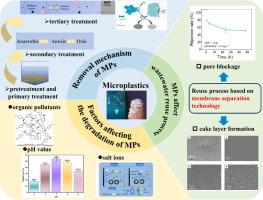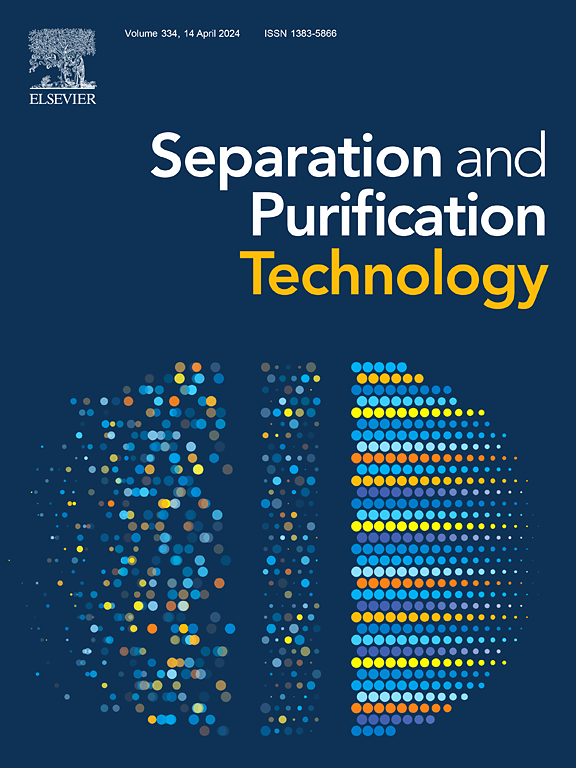Microplastics in petrochemical wastewater: A comprehensive review of removal mechanism, influencing factors and effects on wastewater reuse process
IF 8.1
1区 工程技术
Q1 ENGINEERING, CHEMICAL
引用次数: 0
Abstract
The petrochemical industry is regarded as a potential source of microplastics release, and the problem of microplastics pollution caused by it cannot be ignored. Although the treatment processes of petrochemical wastewater treatment plants can remove microplastics to a certain extent, there are still a large number of microplastics flowing out with the effluent. In addition, the unique water quality characteristics of petrochemical wastewater may also significantly hinder the effective removal of microplastics. In addition, the demand for wastewater reuse is increasing, and microplastics may have a negative impact on the wastewater reuse treatment based on membrane separation technology. In this paper, the release pathway of microplastics in petrochemical industry, the migration and transformation mechanism of microplastics in petrochemical wastewater treatment plants, the key factors affecting the degradation efficiency of microplastics in petrochemical wastewater, and the potential impact of microplastics on the reuse process of petrochemical wastewater based on membrane separation technology are discussed in depth. The objective is to provide a scientific basis for the effective prevention and control of microplastic pollution in petrochemical wastewater.

求助全文
约1分钟内获得全文
求助全文
来源期刊

Separation and Purification Technology
工程技术-工程:化工
CiteScore
14.00
自引率
12.80%
发文量
2347
审稿时长
43 days
期刊介绍:
Separation and Purification Technology is a premier journal committed to sharing innovative methods for separation and purification in chemical and environmental engineering, encompassing both homogeneous solutions and heterogeneous mixtures. Our scope includes the separation and/or purification of liquids, vapors, and gases, as well as carbon capture and separation techniques. However, it's important to note that methods solely intended for analytical purposes are not within the scope of the journal. Additionally, disciplines such as soil science, polymer science, and metallurgy fall outside the purview of Separation and Purification Technology. Join us in advancing the field of separation and purification methods for sustainable solutions in chemical and environmental engineering.
 求助内容:
求助内容: 应助结果提醒方式:
应助结果提醒方式:


